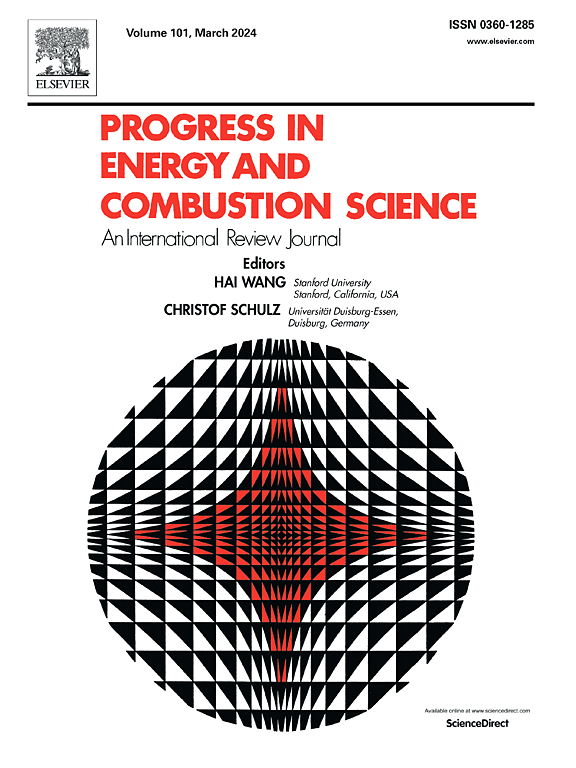Working fluid and system optimisation of organic Rankine cycles via computer-aided molecular design: A review
IF 37
1区 工程技术
Q1 ENERGY & FUELS
引用次数: 0
Abstract
Organic Rankine cycle (ORC) systems are a class of distributed power-generation systems that are suitable for the efficient conversion of low-to-medium temperature thermal energy to useful power. These versatile systems have significant potential to contribute in diverse ways to future clean and sustainable energy systems through, e.g., deployment for waste-heat recovery in industrial facilities, but also the utilisation of renewable-heat sources, thereby improving energy access and living standards, while reducing primary energy consumption and the associated emissions. The energetic and economic performance, but also environmental sustainability of ORC systems, all depend strongly on the working fluid employed, and therefore a significant effort has been made in recent years to select, but also to design novel working fluids for ORC systems. In this context, computer-aided molecular design (CAMD) techniques have emerged as highly promising approaches with which to explore the key role of working fluids, and present an opportunity, by focusing on the design of new eco-friendly fluids with low environmental footprints, to identify alternatives to traditional refrigerants with improved characteristics. In this review article, an overview of working-fluid and system optimisation methodologies that can be used for the design and operation of next-generation ORC systems is provided. With reference to wide-ranging applications from waste-heat recovery in industrial and automotive applications, to biomass, geothermal and solar-energy conversion and/or storage, this review represents a comprehensive, forward-looking exposition of the application of CAMD to the design of ORC technology.
基于计算机辅助分子设计的有机朗肯循环工作流体和系统优化研究进展
有机朗肯循环(ORC)系统是一类适用于将中低温热能高效转化为有用电能的分布式发电系统。这些多功能系统具有巨大的潜力,可以通过各种方式为未来的清洁和可持续能源系统作出贡献,例如在工业设施中部署废热回收,以及利用可再生热源,从而改善能源获取和生活水平,同时减少初级能源消耗和相关排放。ORC系统的节能和经济性能以及环境可持续性都很大程度上取决于所使用的工作流体,因此近年来人们在选择和设计ORC系统的新型工作流体方面做出了重大努力。在这种背景下,计算机辅助分子设计(CAMD)技术已经成为一种非常有前途的方法,用于探索工作流体的关键作用,并通过专注于设计低环境足迹的新型环保流体,提供了一个机会,以确定具有改进特性的传统制冷剂的替代品。在这篇综述文章中,概述了可用于下一代ORC系统设计和运行的工作流体和系统优化方法。从工业和汽车应用的废热回收到生物质、地热和太阳能转换和/或储存的广泛应用,本文综述了CAMD在ORC技术设计中的应用的全面、前瞻性的阐述。
本文章由计算机程序翻译,如有差异,请以英文原文为准。
求助全文
约1分钟内获得全文
求助全文
来源期刊

Progress in Energy and Combustion Science
工程技术-工程:化工
CiteScore
59.30
自引率
0.70%
发文量
44
审稿时长
3 months
期刊介绍:
Progress in Energy and Combustion Science (PECS) publishes review articles covering all aspects of energy and combustion science. These articles offer a comprehensive, in-depth overview, evaluation, and discussion of specific topics. Given the importance of climate change and energy conservation, efficient combustion of fossil fuels and the development of sustainable energy systems are emphasized. Environmental protection requires limiting pollutants, including greenhouse gases, emitted from combustion and other energy-intensive systems. Additionally, combustion plays a vital role in process technology and materials science.
PECS features articles authored by internationally recognized experts in combustion, flames, fuel science and technology, and sustainable energy solutions. Each volume includes specially commissioned review articles providing orderly and concise surveys and scientific discussions on various aspects of combustion and energy. While not overly lengthy, these articles allow authors to thoroughly and comprehensively explore their subjects. They serve as valuable resources for researchers seeking knowledge beyond their own fields and for students and engineers in government and industrial research seeking comprehensive reviews and practical solutions.
 求助内容:
求助内容: 应助结果提醒方式:
应助结果提醒方式:


